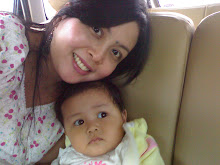| Pre-scholars gets lots of colds – 10 to 12 a year on average, and they usually last for a week – so it’s worth remembering simple ways to reduce the misery. | Clear the passageway: | A baby with a blocked nose will find it hard to feed and breathe. You can clear the nose of mucus by inserting a few drops of cooled boiled water into each nostril before feeding. This moistens the mucus and clears the airway. To do this, lay your baby on a flat surface and hold their head steady with one hand while you insert the drops into the nostrils. Wipe away any excess water with a tissue. You may have to repeat this every four hours or so until the nose is no longer blocked. | Take a deep breath: | A few drops of Karvol, a nasal decongestant, on a tissue tucked between baby’s vest and sleep suit can make a baby over three months of age more comfortable while sleeping. Vicks can be used the same way with a baby over 12 months. Do not give cough or cold medications without discussing them with your doctor or pharmacist. Follow the directions of how much and how often to give the medicine. Always use child-resistant tops, replace the lid after use, and keep the medicine out of your child’s reach. Never give a child another person’s medicine. If your child continues to be unwell or worsens, see your doctor. | Don’t take it lying down: | Raise the head of your baby’s bed about 15 cm by putting a book or two under each leg at the top end. This can make baby less snuffle and help them to sleep. If you are using a full-sized cot, place your baby halfway down so his feet are touching the foot of the bed. This should stop your baby slipping down the bed under the blankets; however, check frequently. | Cool it down: | A fever is a sign that the body is fighting an infection. A baby’s temperature is usually raised (38ºC or higher) when they have a cold. Cooling tactics include taking off a layer of clothing, keeping the room cool, only covering baby with a sheet, offering frequent small feeds, or wiping baby’s forehead with a lukewarm (not cold) sponge cloth. Are his ears sore? Often ear infections occur at the same time as a cold. If you suspect an ear infection, your baby needs to see your doctor immediately for further assessment. If prescribed antibiotics, finish the course of treatment even if improvement occurs before the end. Usually your doctor will check your baby’s ears when you’ve finished the antibiotics. To help prevent ear, nose and throat infections keep your baby in smoke-free areas, breastfeed if possible and sit baby up after feeding. | |

No comments:
Post a Comment